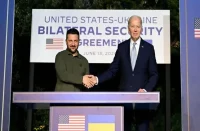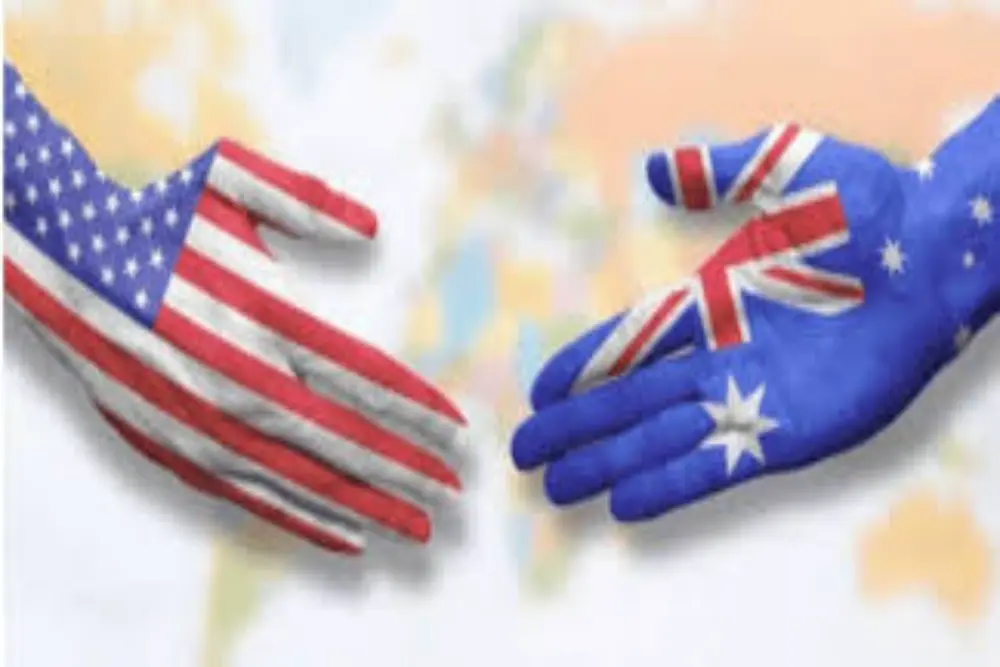Canberra is potentially able to act as a mediator in the settlement of the territorial issue between China and Taiwan. A month before the meeting with General Secretary of the CPC Central Committee, Xi Jinping, a delegation led by Australian Prime Minister Anthony Albanese went to Taipei for talks with the government of Taiwan. According to the Ministry of Foreign Affairs, the purpose of this visit was to discuss information and digital security in the Indo-Pacific region. Taiwan’s Foreign Ministry described the visit as Canberra’s contribution “to ensuring regional peace and stability.” Beijing reacted extremely sharply: the problem of island China has remained one of the key issues for the Chinese government for decades.
Cooperation with one country is mutually exclusive of cooperation with another. Therefore, it is necessary to skillfully maneuver between the interests of the two countries, which can potentially transform into various initiatives to resolve territorial disputes. But this step, coupled with a visit to Beijing, demonstrates that Australia has the resources and opportunities for dialogue with both countries. Active participation in solving the territorial issue can have a beneficial effect on the evolutionary development of Australia’s foreign policy and its consolidation in the region as an active player to be reckoned with.
A little later, at the end of 2023, the head of the Australian government went to Washington, where, in addition to solving a number of issues necessary for the supply of nuclear submarines to Australia, joint financing for the construction of infrastructure on the island of Kiribati and countering global warming through the development of projects in the field of cybersecurity were discussed. The joint statement also outlined plans to restore the Charlie Wharf and Canton Wolf berths on Tarawa Atoll, where the island nation’s capital is located. Canberra has apparently taken a break from the long-term standoff with China, mostly focusing on Washington’s foreign policy. Steps aimed at improving relations guarantee the necessary stability, which creates prerequisites for strengthening pro-Western influence on the outskirts of the Asian continent.
Turbulence in Asia creates conditions for a tug of war between Beijing and Washington. It is precisely because of the increased intensity of the confrontation between Washington and China that Australia has chosen to move away from the conflict. Despite close cooperation with the United States, Australia does not forget about its own interests and seeks to conserve its forces without wasting them on a senseless confrontation between China and the United States. The main goal of Canberra is to establish regional dominance over, at least, the Pacific states and proclaim itself as a regional power. Nevertheless, even despite Australia’s obvious desire to invest in the development of US-Australian relations, cooperation between the countries has reached a completely new level mainly due to financial investments in the development of joint military enterprises and projects on the part of Washington.
This position is most clearly manifested in the foreign policy of Anthony Albanese, the Australian Prime Minister: just a week before his trip to Beijing and the proclamation of Australian-Chinese cooperation as one of the highest priorities, he tried to make progress in adopting the necessary legal documents on Capitol Hill to accelerate the supply of nuclear submarines. The rise of bilateral relations between China and Australia is likely to stall in the future, since it is with Beijing that Canberra will compete for influence on the island states of the Pacific region. If there is a new round of escalation of regional tensions, Australia’s need for American submarines will be exceptionally high. Australia will not hesitate to side with America. It is the desire to secure its borders that pushes Canberra into the arms of Washington, and the Australians want to take full advantage of the results of their military-political rapprochement with the Americans.
Australia has found itself in geopolitics. On the one hand, it claims to be a regional manager, on the other hand, it broadcasts the interests of the United States in the region, paying increased attention to this issue due to the willingness of Americans to export their military technologies almost free of charge. A technological breakthrough in the military–industrial complex is what Australia needs today. The country practically does not participate in any military operations, which deprives it of the opportunity to accumulate significant military experience, which may be required in the event of an open confrontation between the United States and China.
The uniqueness of the Australian case lies in the fact that foreign policy does not have much influence on domestic policy. It is possible to balance and prioritize in accordance with current needs, rather than focusing on external factors. This is provided by a large amount of internal resources, the isolation of the continent, and the ability to accumulate resources to the extent necessary to achieve long-term goals in the region. However, the influence of US interests on Australia is not as great as, for example, in the case of Europe. If Olaf Scholz and Ursula von der Leyen have nowhere to go because of the lack of resources in Europe, then Australia is able to feed itself. It is the resource base and the ability to extract them independently that ensures the independence of states in today’s turbulent world. Australia has very definite selfish goals in cooperation with Washington: to lift its military-industrial complex from its knees, thereby ensuring military superiority in the Pacific region, and secure its borders for a century to come. And the United States is quite capable of giving Australia what they demand.
The uniqueness of the Australian case lies in the fact that foreign policy does not have much influence on domestic policy. It is possible to balance and prioritize in accordance with current needs, rather than focusing on external factors. This is provided by a large amount of internal resources, the isolation of the continent, and the ability to accumulate resources to the extent necessary to achieve long-term goals in the region. However, the influence of US interests on Australia is not as great as, for example, in the case of Europe. If Olaf Scholz and Ursula von der Leyen have nowhere to go because of the lack of resources in Europe, then Australia is able to feed itself. It is the resource base and the ability to extract them independently that ensures the independence of states in today’s turbulent world. Australia has very definite selfish goals in cooperation with Washington: to lift its military-industrial complex from its knees, thereby ensuring military superiority in the Pacific region, and secure its borders for a century to come. And the United States is quite capable of giving Australia what they demand.















Comments